COMMENT | The “Manifesto of the 99%” is the manifesto of the progressive alternative that provides a range of effective reforms for a truly just, democratic and sustainable future that BN and Pakatan Harapan have failed to provide.
So far, it has been endorsed by nearly 100 organisations, representing a cross-section of Malaysian multi-ethnic society.
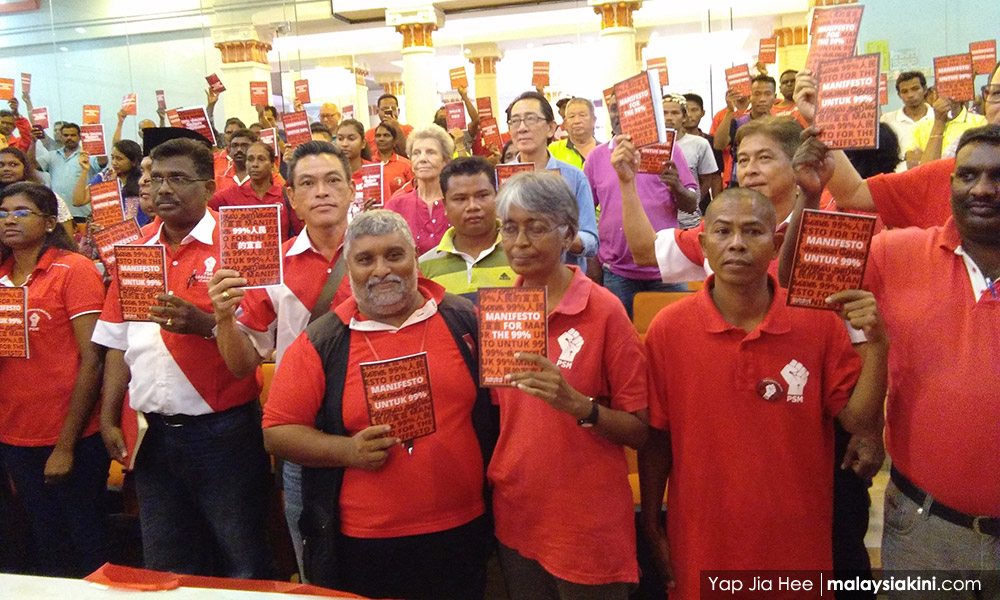
Malaysians should demand that BN and Harapan leaders debate these big issues that affect our lives and society before GE14, instead of the usual mudslinging and scandalmongering that both coalitions are tainted with.
BN and Harapan represent the one percent
Apart from the neoliberal policies that BN and Harapan champion, the top leaders of BN and Harapan represent the interests of the rich one percent – big corporations, those which seem to have both coalitions in their pockets with their “development” projects that involve carving out forests, reclaiming land and colonising other assets in our public commons.
The top leader of BN has admitted that he was given RM2.6 billion before the 2013 general election. The “new” top leader of Harapan is the “Father of Privatisation” and non-accountable contracts that the leader of the opposition once called “piratisation” of our national assets. One of his sons is among Forbes’ richest 50 Malaysians in the country.
Tainted by financial scandals
The top leader of BN is facing worldwide infamy, not only for the RM2.6 billion found in his personal account, but also for billions more allegedly laundered in the 1MDB scandal through a web of international transactions.
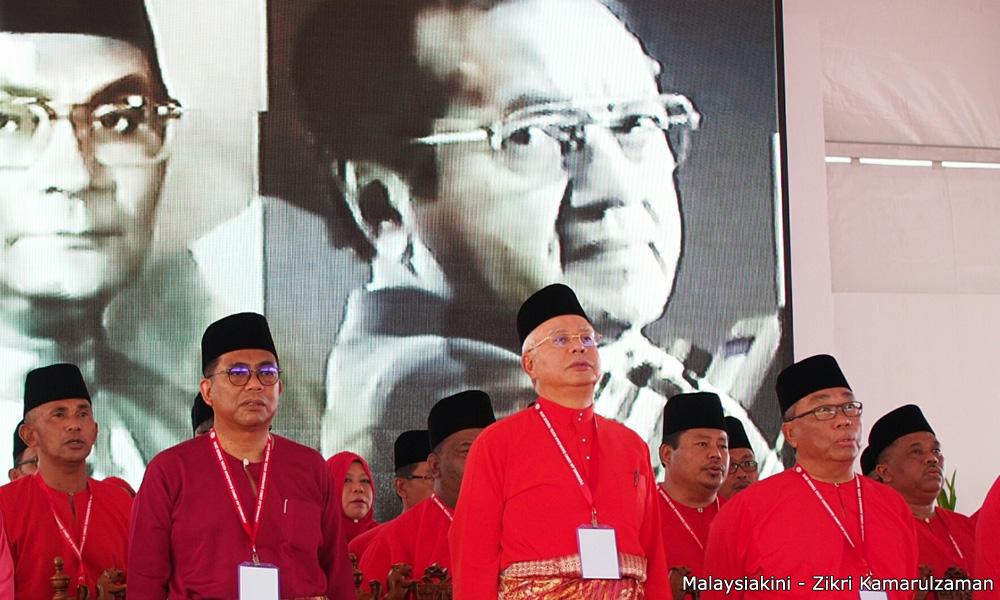
The top leader of Harapan was alleged to have squandered up to RM100 billion of Malaysian taxpayers’ money in several financial scandals. At the same time, the top leader of one of the coalition’s component parties has been charged with corruption, but has refused to step down while the case is in the courts.
Wealth redistribution to the 99 percent
Both BN and Harapan are competing to see which coalition can outdo the other in neoliberal policies that offer investors attractive opportunities that they can’t refuse.
And while we see BN or Harapan shedding crocodile tears over the rise in the cost of living, we do not see these coalitions putting forward sound policies to redistribute wealth in this country.
Do they propose progressive fiscal policies to tax the top one percent who own more wealth than the bottom 40 percent in our country, such as higher marginal tax rates on income, capital gains, inheritance and luxuries?
The wealth of the richest 50 Malaysians (the top 0.00017 percent) amounts to nearly RM300 billion, which is a quarter of the country’s total GDP. Do BN and Harapan put forward proposals to regulate financial transactions and to put an end to tax evasion?
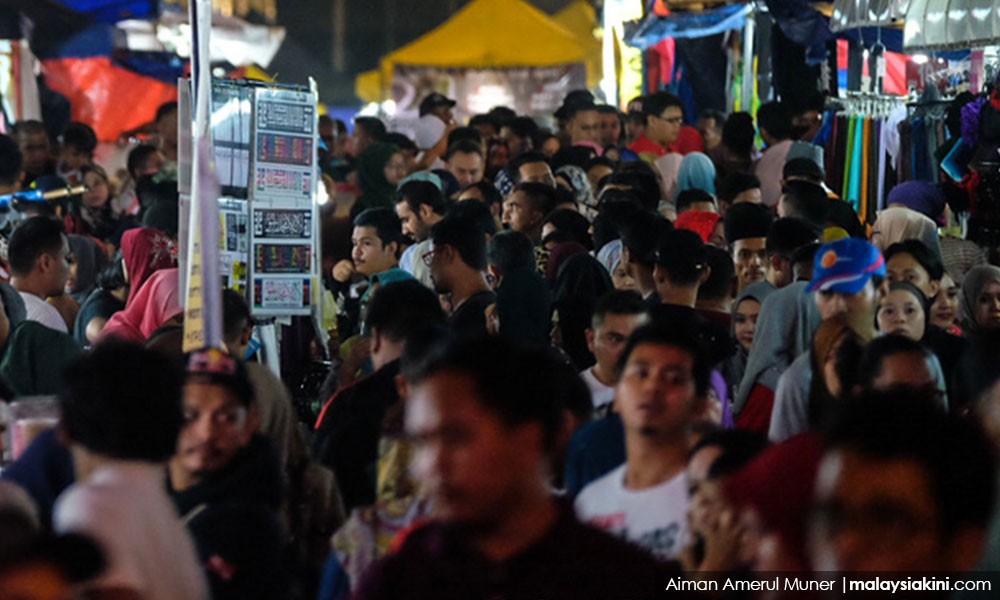
In a real democracy, Malaysians would witness the top leaders of the two coalitions engage in a debate over such fiscal policies to showcase what benefits they can bring the 99 percent of Malaysians before the election, but this hardly ever happens over here.
Affordable public housing, health, transport and education
A just, democratic and progressive alternative calls for a living wage and rights for all workers; a reasonable pension at retirement for all; affordable and liveable public housing; affordable and efficient public health and transport; free tertiary education (means-tested for the well-off), etc.
BN and Harapan do not prioritise such public provisions because they are champions of neoliberalism and private interests.
We want to reclaim our public assets from privatisation, halt any further privatisation of public assets, nationalise public utilities such as water and energy, and democratise GLCs; apportion more revenue from oil and gas resources to the oil and gas-producing states, and ensure Petronas’ oil and gas production and investment records are transparent and accountable to Parliament and the public.
An end to racial discrimination
Both BN and Harapan are made up of race-based political parties to gain votes and popularity. The new component of Harapan is the race-pure Bersatu party, which considers itself the “real” champion of the Malays, in contrast to Umno.
Consequently, none of the political parties in either of the two coalitions has raised the question of when the racially discriminatory New Economic Policy, which was scheduled to end in 1990, will end.
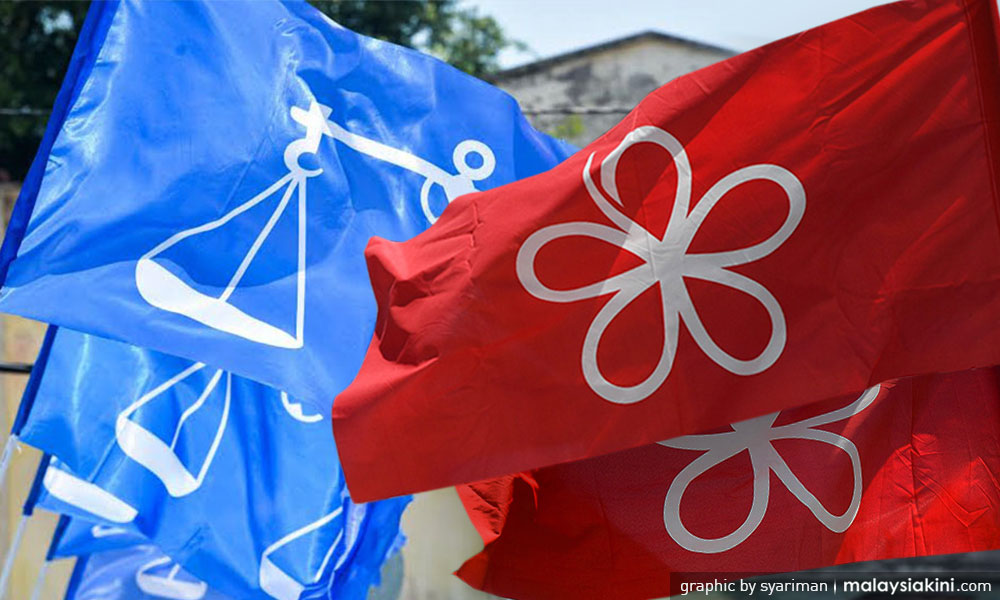
Race-based policies have become the norm in this country, even though they are the biggest impediment to national unity. So, BN and Harapan must tell us whether our “1Malaysia” will still be run on racial preference and discrimination after GE14. If not, when will such racial policies end?
While the middle class and professionals can afford to adapt to such racial discrimination, the poorer classes in the non-bumiputera communities, especially, have been suffering discrimination in education and economic opportunities ever since 1971.
The “Manifesto of the 99%” calls for needs-based and not race-based policies. The majority of democratic countries in the world do not have race-based political parties, nor do they have racially discriminatory laws and policies.
An Equality Act will make racially discriminatory policies a thing of the past and equality will become an intrinsic part of the Human Rights Commission.
The progressive alternative that we are trying to build takes human rights seriously and respects all Malaysian citizens irrespective of ethnicity, religious beliefs, gender or sexuality so that we can march forward as a nation.
A just, democratic and progressive alternative
The progressive alternative speaks for the 99 percent of Malaysians who want real democracy, instead of the pious commitments to periodic general elections, which do not change our lives substantively.
It is time that we imposed term limits on office bearers and elected representatives. There are some representatives who have been in Parliament since independence and still try to claim indispensability.
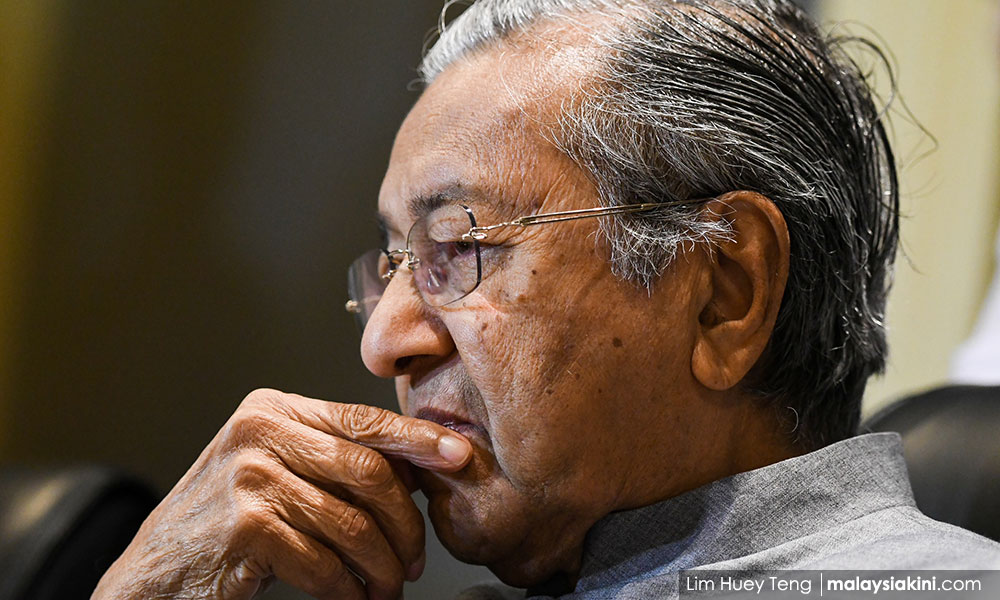
Apparently, there are not enough capable young women or leaders from marginalised communities in this country who can replace these dinosaurs in Parliament. Harapan wants us to “vote for change” in order that their new leader – who is Malaysia’s 93-year-old former prime minister – can be prime minister again.
Representatives to the Dewan Negara need to be elected through proportional representation and all elected representatives and senior civil servants must be required to publicly declare their assets and incomes, as well as those of their immediate families.
Elected officials can be recalled from office, through a direct vote before their terms end, when sufficient voters sign a petition.
The continual postponement of local government elections since their suspension in the 1960s is not acceptable. We call for democratic elections, whether on a formal or informal basis, with the rotation of the top posts and asset declarations of the top office bearers instituted.
Decentralised social services such as education, housing, transport and even community policing can be managed by elected local councils.
It is time for the 99 percent of Malaysians to seriously discuss and adopt the proposals in this manifesto and to help to build a new progressive alternative in order to take the country into a brighter future based on equality, justice, democracy and human rights.
We challenge the leaders of BN and Harapan to debate these big issues, instead of the usual mudslinging, name calling and scandalmongering at every election. They should at least try to have a little discreet charm to prove wrong whoever it was who said:
“The oppressed are allowed once every few years to decide which particular representatives of the oppressing class are to represent and repress them.”
KUA KIA SOONG is Suara Rakyat Malaysia (Suaram) adviser.
The views expressed here are those of the author/contributor and do not necessarily represent the views of Malaysiakini.

